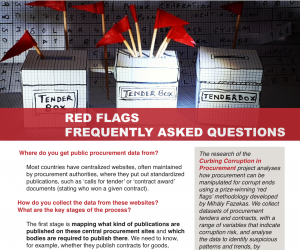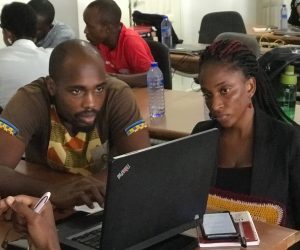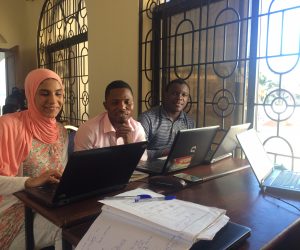Written by Elizabeth David-Barrett and originally published on the ACE-Global Integrity blog. Public procurement is one of the key ways of corruptly channelling money out of the state, not least because it is one of the few areas of public spending in which there is significant discretion. That means that, in a well-functioning state, there will be many bodies with an interest in controlling and overseeing […]
India’s federal procurement data infrastructure
Written by Isabelle Adam and published on the ACE-Global Integrity blog. In a previous blog, we explored some common problems data scientists encounter when collecting and analyzing data. In the accompanying Red Flags Explainer, we drew on our experience of building and analysing datasets of government procurement over the past ten years to answer some Frequently Asked Questions about our work, explaining some of the challenges and what […]
Where does pressure for public procurement transparency come from? Reflections from Uganda and Tanzania
Written by Isabelle Adam and originally published on the ACE-Global Integrity blog. For years, the benefits of transparency as a policy tool to increase accountability and counter corruption have been lauded. In public procurement, this has given rise to a global movement promoting procurement data transparency, a.k.a. open contracting. Many governments have committed to making public procurement data more transparent and open for public scrutiny. But […]
Why is collecting and analysing data about public procurement so damned difficult? Data scientists explain some common problems
Written by Elizabeth David-Barrett and originally published on the ACE-Global Integrity blog. Open data is often lauded as a magic pill for anti-corruption: reveal what’s going on, inform the public, and, presto, government will become more accountable. Oh, and big data just means bigger gains, right? Not quite. We have written elsewhere about the institutional and political challenges that can hinder the transparency –> accountability transformation. But […]
Grand corruption and the authoritarian turn
If incoming governments in liberal democracies wish to use public contracts to benefit those loyal to them, they face institutional constraints. To implement corrupt procurement strategies they would need to sabotage these checks and balances. By comparing procurement data from Hungary and the UK, Liz Dávid-Barrett and Mihály Fazekas can identify the relative effect of such anti-democratic institutional changes, as seen in Hungary, on government patronage. Is liberalism really dead? In his […]
Using ‘red flag’ indicators to identify corruption and analyse reform efforts in the procurement process
Liz David-Barrett and Mihály Fazekas The campaign to open up contracting around the world has had a positive consequence for corruption researchers: there is an abundance of data about public procurement (government purchases of goods, works and services from an external source through a tendering process). In our GI-ACE project, we use this data to develop new proxy indicators of corruption risk, based on ‘red flags’ […]
Workshop in Uganda explores new data
On 13-14 October, Liz David-Barrett ran a workshop together with the Department of Mathematics at Makerere University, Uganda, and the African Maths Initiative on Analysing Corruption Risks in Procurement Data. The workshop brought together top Maths and Statistics students with civil society experts on anti-corruption in Uganda to analyse data and look for ‘red flags’ of corruption risk. As well as using open-source statistics software […]
Ghana workshop: Analysing red flags in procurement
What do you get if you cross anti-corruption activists with mathematicians? It’s no joke. This was exactly what we did in Cape Coast, Ghana, recently, bringing these two groups together to analyse procurement data for evidence of corruption ‘red flags’ in a two-day hackathon at AIMS Ghana. The anti-corruption world has a tendency to pin its hopes on transparency as a solution, and recently in […]
Getting smart about data helps tackle corruption
The G20 made tackling corruption a priority in 2017, highlighting in particular the harm caused by corruption in impeding the development of the poorest countries, threatening market integrity and distorting open competition. This damage is nowhere more evident than in public procurement. Public money is wasted, infrastructure is built to poor standards, public services are provided inadequately. Yet tracing corruption in contracting is often very […]
Data, Software and Talent: Turning Open Data into a useful Anti-Corruption Tool for Africa
For years, campaigners have lauded the benefits of transparency as a policy solution to corruption. That message was gradually refined as researchers noted that transparency was effective as an anti-corruption tool only if it led to increased accountability, and that this only happened in conditions where the overall institutional environment was conducive. More recently, open data – data about the activities of governments and public […]








